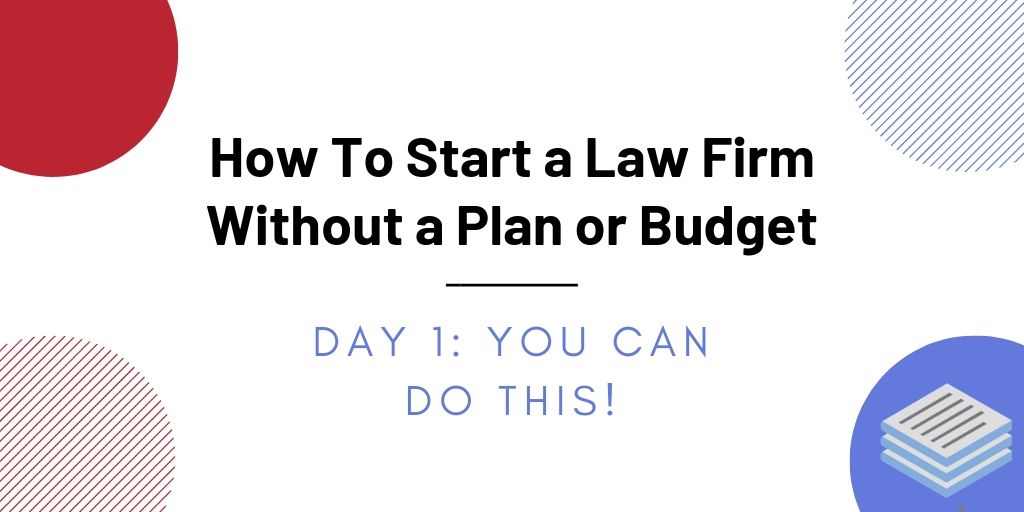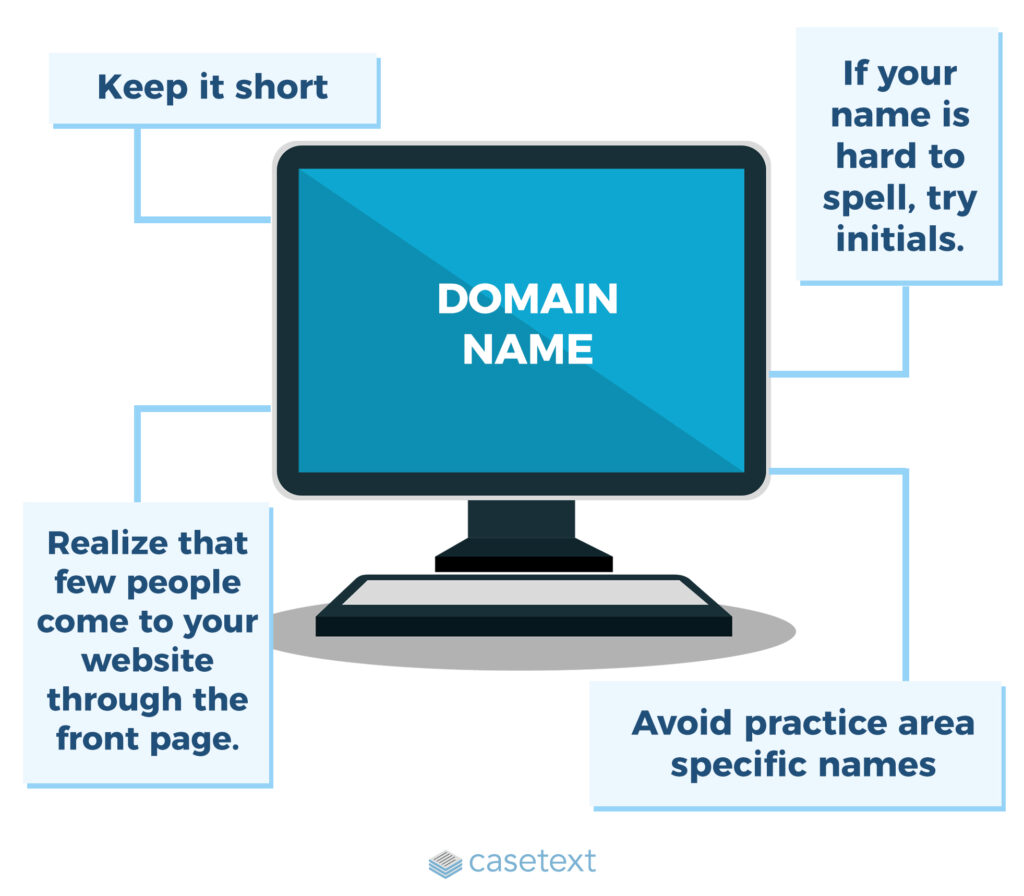
Do you feel doubt? Are you scared? Is the thought of starting your own law firm keeping you up at night? I know it kept me up, but I’m here to tell you how I dug myself out of that hole.
Law practice got screwed up. Before October 2008, it seemed like the golden ticket. Salaries had exploded over decades and big firms preened like peacocks to charm new associates. They promised money, training, and snacks in the breakroom.
I went to law school in September of 2008. Obviously. The last goofball that didn’t see it coming. By that time, the only people handing out snacks were the companies that profited off of students — bar exam prep companies, law schools, and Sallie Mae.
When it hit us, students realized that we owned our futures. Honestly, some realized it sooner than others, but we eventually all had to face the same soul-crushing fact: The golden ticket wasn’t coming.
Even now, we’re producing more lawyers than the high-income employment market can bear. Maybe you’re starting a firm because a better opportunity didn’t come up, or maybe you have family commitments that require more control, or maybe you just can’t see yourself working for a boss.
Whatever brought you here, you’re more qualified than you think.
Law school and the bar exam seem tailor made to create insecurity.
You went from being the smartest kid in the room all your life to being one of the smart kids among many. And then they put you on a curve, ranked you, and handed you a test.
It’s easy to feel like you’re not good enough to help anyone as an attorney, much less as a solo.
Here’s the truth: YOU are a genius. In the age of internet gurus selling video courses with little real knowledge or experience, you are a trained professional. I’m not saying you’re an expert — that takes years — but you are a trained professional.
Several thousand people in your area could benefit from your knowledge. If you find them, and if you offer what you know (and I’ll show you how to do both), you could change their lives. Seriously.
(Each day in this next two weeks, I’ll give you something to churn over in your brain. Today’s task is hard.)
Spend some time with yourself today and figure out whether you want to be a lawyer, no matter the cost. This is no small thing. Maybe you’ve wrestled with the question before, and maybe you’ve ignored it while debt piled on. Time’s up. Make a call.
Once you make that decision, once you’ve “resolutely determined” as Honest Abe put it, you’re ready to act. Which means it’s time to put yourself out there.
(Every day I’ll also give you a task to handle. This is your “to do list,” and I can guarantee that doing will get you further than reading. So take these tasks seriously.)
In the internet age, putting yourself out there means getting a website. Websites can be a tangled mess that quickly derails you. They’re important, but not important enough to slow you down. So today we’ll handle a very manageable chunk: reserving a domain name.
Head to www.instantdomainsearch.com and start typing in variations of your name and some law-related term. Don’t overthink this. You’re coming up with a domain name, not writing Moby Dick.
My firm’s domain name was whelanlawfirm.com, which is a terrible name. It’s too long and my name is tough to spell. Who cares? I made lots of money my first year in practice and didn’t get disbarred. I promise your uncreative domain name won’t bury you either.
A few tips that might help:
That’s it. Get a domain name. You don’t have to buy hosting at this point and I wouldn’t recommend it anyway. (Hosting is basically the house where your website lives, and you’re a few steps from laying the foundation for that house. No need to lock yourself down right now.)

The domain name is cheap and a quick win. Just get one. And move on.
Go on to the next chapter: You Are Ill-Prepared
Or, go back to the Table of Contents
Rapidly draft common legal letters and emails.
How this skill works
Specify the recipient, topic, and tone of the correspondence you want.
CoCounsel will produce a draft.
Chat back and forth with CoCounsel to edit the draft.
Get answers to your research questions, with explanations and supporting sources.
How this skill works
Enter a question or issue, along with relevant facts such as jurisdiction, area of law, etc.
CoCounsel will retrieve relevant legal resources and provide an answer with explanation and supporting sources.
Behind the scenes, Conduct Research generates multiple queries using keyword search, terms and connectors, boolean, and Parallel Search to identify the on-point case law, statutes, and regulations, reads and analyzes the search results, and outputs a summary of its findings (i.e. an answer to the question), along with the supporting sources and applicable excerpts.
Get answers to your research questions, with explanations and supporting sources.
How this skill works
Enter a question or issue, along with relevant facts such as jurisdiction, area of law, etc.
CoCounsel will retrieve relevant legal resources and provide an answer with explanation and supporting sources.
Behind the scenes, Conduct Research generates multiple queries using keyword search, terms and connectors, boolean, and Parallel Search to identify the on-point case law, statutes, and regulations, reads and analyzes the search results, and outputs a summary of its findings (i.e. an answer to the question), along with the supporting sources and applicable excerpts.
Get a thorough deposition outline in no time, just by describing the deponent and what’s at issue.
How this skill works
Describe the deponent and what’s at issue in the case, and CoCounsel identifies multiple highly relevant topics to address in the deposition and drafts questions for each topic.
Refine topics by including specific areas of interest and get a thorough deposition outline.
Ask questions of contracts that are analyzed in a line-by-line review
How this skill works
Allows the user to upload a set of contracts and a set of questions
This skill will provide an answer to those questions for each contract, or, if the question is not relevant to the contract, provide that information as well
Upload up to 10 contracts at once
Ask up to 10 questions of each contract
Relevant results will hyperlink to identified passages in the corresponding contract
Get a list of all parts of a set of contracts that don’t comply with a set of policies.
How this skill works
Upload a set of contracts and then describe a policy or set of policies that the contracts should comply with, e.g. "contracts must contain a right to injunctive relief, not merely the right to seek injunctive relief."
CoCounsel will review your contracts and identify any contractual clauses relevant to the policy or policies you specified.
If there is any conflict between a contractual clause and a policy you described, CoCounsel will recommend a revised clause that complies with the relevant policy. It will also identify the risks presented by a clause that does not conform to the policy you described.
Get an overview of any document in straightforward, everyday language.
How this skill works
Upload a document–e.g. a legal memorandum, judicial opinion, or contract.
CoCounsel will summarize the document using everyday terminology.
Find all instances of relevant information in a database of documents.
How this skill works
Select a database and describe what you're looking for in detail, such as templates and precedents to use as a starting point for drafting documents, or specific clauses and provisions you'd like to include in new documents you're working on.
CoCounsel identifies and delivers every instance of what you're searching for, citing sources in the database for each instance.
Behind the scenes, CoCounsel generates multiple queries using keyword search, terms and connectors, boolean, and Parallel Search to identifiy the on-point passages from every document in the database, reads and analyzes the search results, and outputs a summary of its findings (i.e. an answer to the question), citing applicable excerpts in specific documents.
Get a list of all parts of a set of contracts that don’t comply with a set of policies.
Ask questions of contracts that are analyzed in a line-by-line review
Get a thorough deposition outline by describing the deponent and what’s at issue.
Get answers to your research questions, with explanations and supporting sources.